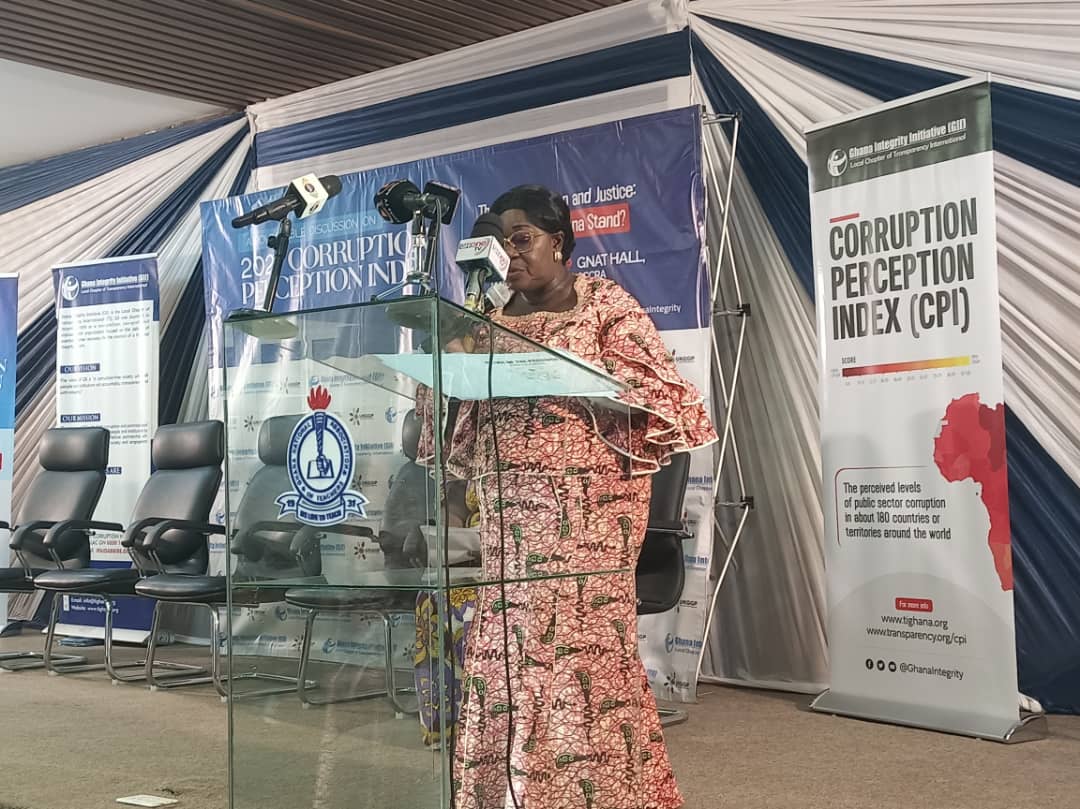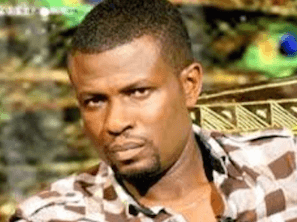
Ghana is gradually returning to the culture of silence, as the John Mahama administration is becoming intolerable to peoples’ right to freedom of expression. Over the past few weeks, the arrest of social media activists for simply expressing their opinions over national issues signals the creeping incidence of a possible return to the era of the culture of silence. In the early 1990s journalists were indiscriminately arrested and detained, while some newspaper offices were shit bombed with human waste. It would be a major setback, if Ghana were to return to the dark days of political intimidation and the culture of silence.
Arresting bloggers
This article was necessitated by news of the arrests and detention of two bloggers, who are loyal to the opposition New Patriotic Party (NPP). They are a popular blogger called “Fante Comedy” by name Prince Ofori and Yayra Abiwu, popularly known as “Akosua Jollof” in the digital space. The two suspects were arrested on April 12, 2025, in connection with a viral TikTok video in which a contributor on the live show allegedly threatened to kill President John Mahama and behead First Lady, Madam Lordina Mahama before the end of 2025. Realising the gravity of the threat, Fante Comedy quickly published a rebuttal and apologized for the unethical comment on his Tik Tok show. However, his retraction and apology were not enough to avoid a police arrest.
The arrests and detention of the bloggers is not isolated. The Ghana Journalists Association (GJA) has raised the red flag over the incessant attacks of mainstream journalists by security agencies in their course of discharging their roles as watchdogs over society. The executives of the GJA have appealed to the government to call the Police, the Military and other institutions with the power of arrests to stop intimidating journalists.
Power of social media
With the advancement of online media technology, social media has become the platform for many people to participate in national discourse. The new media has empowered many people to frame and publish their own news or concerns outside the gatekeeping processes of mainstream media.
Through social media people are making their voices heard on social, political and economic issues. Several citizen journalists and bloggers are gaining recognition for their positive contribution in reporting breaking news, human right abuses and poor service across the country. In addition, citizen journalists and bloggers are playing a key role in reporting news from remote parts of Ghana, where traditional journalists are not available. Rural news hardly attracts traditional journalists and mainstream media due to the extreme commercialization of news. Despite the changing notions of news, mainstream media’s definition of news is still based on powerful sources. Hitherto, it was only the voices and views of influential people that were heard on mainstream media. Notwithstanding the usefulness of new media for political and social discourse, those who operate in the digital sphere should be guided by the fact that their utterances can be held against them through defamation and cyber security laws.
Unregulated publications
In that regard, the unregulated and unsolicited sharing of inimical videos and photos on social media is one of the emerging ethical concerns of the digital sphere. In other words, citizen journalists and bloggers are expanding the boundaries of media ethics. Some citizen journalists and bloggers can best be described as “attack dogs” or “cyber terrorists” who have become a formidable force, but for the wrong reasons of inciting political, ethnic and religious violence and trading in fake news. They mostly blackmail and denigrate the brands and reputations of people supposedly opposed to their political ideologies. Whereas some of them often cite the constitutional guarantees of freedom of expression, they often forget that there are no unlimited freedoms anywhere. Every freedom should be accompanied by responsibility and accountability.
Ghana has a powerful and ruthless cadre of citizen journalist and bloggers who have little regard for communications ethics and our social and cultural values. The most “notorious” or “famous” of them are Kevin Taylor, Twene Jonas, Captain Smart, Afia Pokua and Ohene David among others. These citizen journalists and bloggers have been variously described as cyberbullies, who regularly use social media to threaten and blackmail influential people, including the Asantehene, former Presidents Akufo-Addo, John Agyekum Kufuor and other religious leaders, whose ideologies probably conflict with their ideologies. In addition, some of these cyberbullies often use fake news to undermine the reputations and brands of their victims.
Venomous bloggers
Arguably, Kevin Taylor is Ghana’s most virulent social media activist, only matched by Twene Jonas, another Ghanaian blogger based in the United States. Posterity will remember them for their negative contribution to political communication. They have unleashed several attacks on Ghana’s kings, chiefs, religious leaders and other political leaders without anyone raising the red flag over their unethical behaviour online. In one of his venomous political programmes on social media, Kevin Taylor threatened to burn the palaces of some chiefs in the country who had probably failed to succumb to or toe the line of his political ideology. Subsequently, Taylor threatened to kill the NPP’s Presidential candidate, Dr. Mahamadu Bawumia, who was also the Vice President of Ghana. Besides, Twene Jonas also threatened to kill ex-president Akufo-Addo if the NDC did not win the 2024 elections. Another NDC communicator on a life radio programme prayed that any aircraft carrying President Akufo-Addo should crash. He emphasized that Ghana would lose nothing if Akufo-Addo were to die through a plane crash.
Despite his political vituperations, inciting religious and ethnic tensions on social media, Kevin Taylor is held in high esteem by the ruling class of the NDC. He was recently left off the hook by an Appeal Court, which annulled a contempt case placed on him by a High Court for insulting and denigrating the judicial system. As you read this article, Taylor is being housed in a state facility and perhaps fed with the taxpayer’s money.
I am not in favour of any form of unethical behaviour and unregulated comments on social media, despite the freedom it offers; however, what is wrong is wrong. If the unguided and uncultured misuse of social media to insult our elderly people is wrong today, it was equally wrong yesterday. Viewed against what Kevin Taylor and co spew on social media, what transpired on Fante Comedy’s show is less grievous and should not have attracted such reaction from the police.
Discretionary powers
The difference between current and past dispensations is that the Akufo-Addo government tolerated too much fake news, misinformation and disinformation, perhaps to foster the freedom of expression provided in the 1992 Constitution. On the contrary, President John Mahama’s government which benefitted from cyber-attacks on his enemies is less tolerant of divergent views. With just seven months into its four-year tenure, Ghana under NDC is increasingly sliding to a police state, a trend which is not healthy for our democracy.
In the run up to the 2016 general elections, Africa Watch, a news magazine published by a Ghanaian journalist based in the United States published several fake news about the presidential candidate of the NPP, Nana Akufo-Addo. The fabricated news involved the health condition of Akufo-Addo, perhaps to feed a false narrative that he was terminally ill with cancer and was unfit to be elected president. The magazine published manipulated pictures of Akufo-Addo on a hospital bed receiving medical attention. The reports suggested that if voted as President Akufo-Addo would be a financial drain on the taxpayer, as he would be regularly flown abroad for intensive care.
Furthermore, the reports were designed to dissuade voters from voting for him, but rather they should vote for a much younger and healthier candidate. The fake news about the Akufo-Addo’s health were reinforced by Felix Ofosu Kwakye, then communications member of NDC and currently a minister of state in charge of Government Communications. Almost nine years after the fake news and manipulated pictures, Akufo-Addo has served two-terms of four years and is now an ex-president of the Republic of Ghana. He recently celebrated his 81st birthday, on March 30th, 2025.
Victim of fake news
On August 1, 2024, then President Akufo-Addo bemoaned the incessant use of fake news in political communication in Ghana. Speaking at the Ghana Report Summit in Accra, he explained how he endured fake news, misinformation and disinformation for several years prior to becoming the President of Ghana. According to him even after becoming the President, with executive powers fake news about him and his family intensified. He accused his political opponents of publishing false news about him, but without sanctioning the arrest of anyone.
He recalled that during the 2012 general elections similar fake news were peddled in both mainstream and new media about his arrest in London for possessing drugs. He said the allegations were backed with fabricated quotes that were crafted to stir ethnic tensions. Also, in 2016 elections fake news content creators and publishers published false information that alleged that he killed his ex-wife. Similarly, with a few months to the 2024 elections, he said he was not surprised that fake news architects spread false news against him in a fabricated documentary titled, “Agyapadie” to score cheap political points. He described fake news as a threat to national peace and stability.
If I am not mistaken, Akufo-Addo never used his executive powers to cause the arrest of any traditional journalists, citizen journalists and bloggers for publishing false information about his health and related issues. Rather the government issued fake news stamps to counter the misinformation and disinformation.
Hate speech
In a related development in September 2024, a female TV pundit called Afia Pokua breached the highest level of media ethics when she launched unprovoked attacks on the Asantehene, King Osei Tutu II. She used unprintable words and invectives against the occupant of the Golden Stool and all Ashantis. In the same vein Samuel Huntor and Dela Edem launched tirades at the Asantehene and ex-president John Kufuor. Their attacks were laden with ethnic hatred carefully choregraphed to draw hatred for Ashantis ahead of the 2024 elections. Afia Pokua, Della Edem and Samuel Huntor were never arrested and detained for their reckless, uncultured and uncouth behaviour on Onua TV and social media.
While I am by no means in support of any unethical and unproductive use of social media and mainstream media to spread fake news, hate speech and to cause fear and panic, I appeal to the government and its coercive forces to use proper discretion in handling such cases for the sake of our democracy. I also caution traditional journalists; citizen journalists and bloggers operating in the media space, including the digital sphere to always go an extra mile to authentic news before sharing. The non-verification of information and the desire to be the first to share and trend are some of the traps the new media have created for our society.
All of us operating in the media space should always abide by the old ethical axiom that “when in doubt, do not publish.” We need to be reminded that there are no absolute rights anywhere. Therefore, we owe our country a duty to respect people’s privacy and dignity, irrespective of the right to freedom of expression guaranteed in the 1992 Constitution.
The post We must not return to the culture of silence appeared first on The Business & Financial Times.
Read Full Story

















Facebook
Twitter
Pinterest
Instagram
Google+
YouTube
LinkedIn
RSS